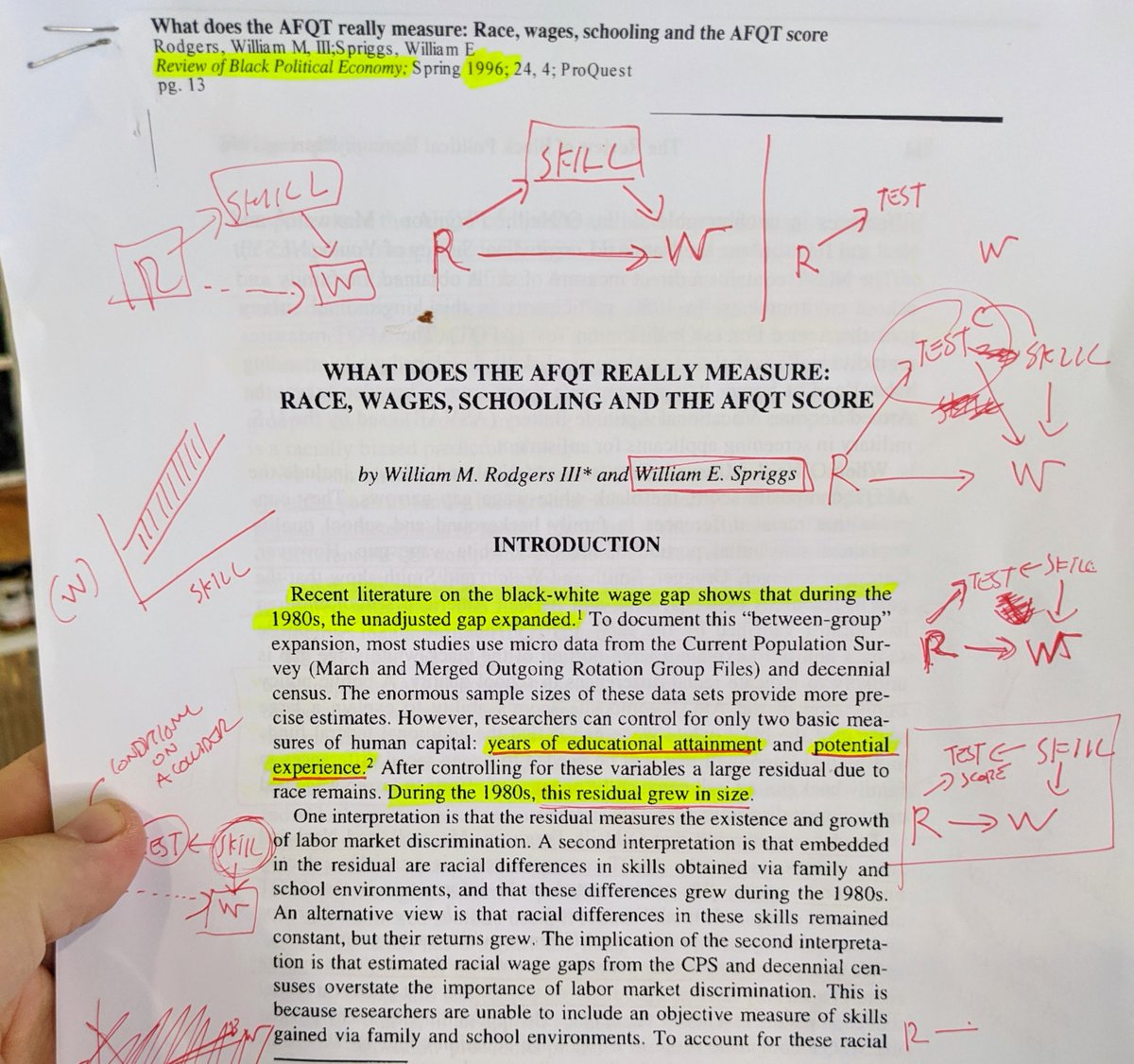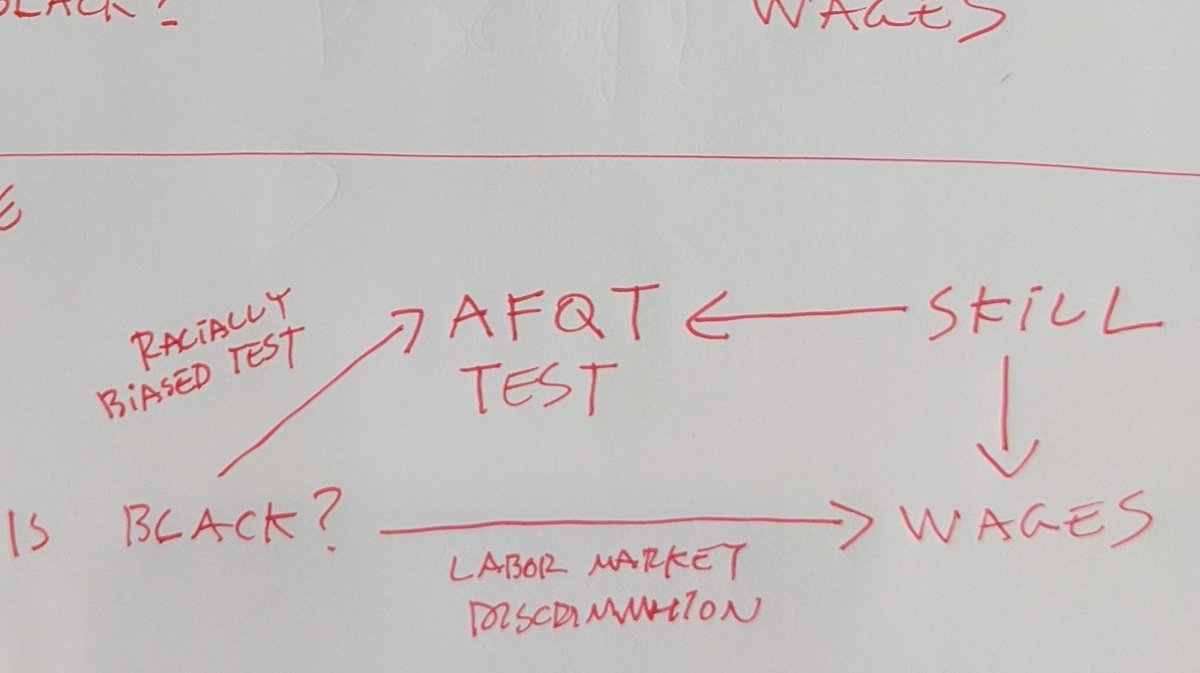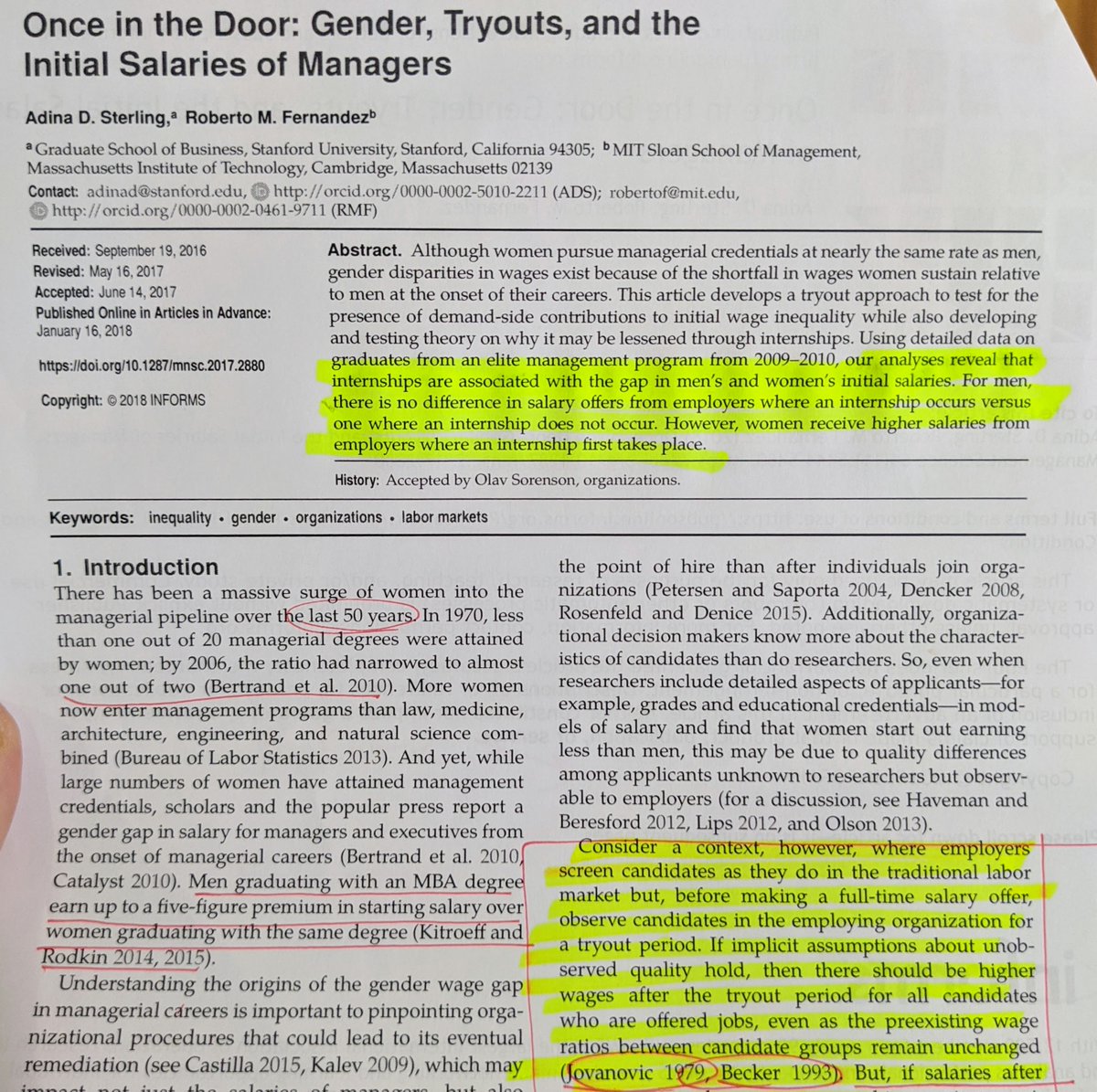Thanks @abhishekn for tagging me and @femonomics for starting the #TweetABlackEconomistsPaper threads.
My training is in economics/strategy/sociology so I am going to highlight a black economist, strategy scholar, and sociologist! First up is a paper by @WSpriggs https://twitter.com/abhishekn/status/1275568392808697856
My training is in economics/strategy/sociology so I am going to highlight a black economist, strategy scholar, and sociologist! First up is a paper by @WSpriggs https://twitter.com/abhishekn/status/1275568392808697856
Before diving into the paper, if you have not read @WSpriggs essay "Is now a teachable moment for economists?" then please GO READ IT NOW.
https://www.minneapolisfed.org/~/media/assets/people/william-spriggs/spriggs-letter_0609_b.pdf?la=en
https://www.minneapolisfed.org/~/media/assets/people/william-spriggs/spriggs-letter_0609_b.pdf?la=en
The essay is powerful and concise, highlighting how economists and social scientists often approach the study of race and discrimination in ways that reinforce racism and give justifications for our present inequalities.
It also outlines how to improve our analysis of race.
It also outlines how to improve our analysis of race.
Okay, now that you have gone and read the essay, on to the paper! I am going to be talking about his paper w/ William Rodgers III "What does the AFQT really measure?" published in '96 in the Review of Black Political Economy.
After reading his essay I wanted to learn more about Sprigg's work so I hopped on Google and found this paper.
https://link.springer.com/content/pdf/10.1007/BF02690041.pdf
So what is the paper about?
https://link.springer.com/content/pdf/10.1007/BF02690041.pdf
So what is the paper about?
The paper is an analysis of how we test different explanations for the black-white wage gap.
The paper starts by summarizing two classic explanations: is the gap due to differences in skills between black/white workers OR because of labor market discrimination?
The paper starts by summarizing two classic explanations: is the gap due to differences in skills between black/white workers OR because of labor market discrimination?
How do we test between the two?
Well, given a measure of worker skill, we can throw that into a wage regression and test is including the skill measure diminishes the coefficient on our variable that measures the worker's race.
Well, given a measure of worker skill, we can throw that into a wage regression and test is including the skill measure diminishes the coefficient on our variable that measures the worker's race.
The standard argument is that if the race coefficient shrinks to zero then the wage gap isn't due to racist hiring or labor market discrimination but inequities in training, schooling, etc....
The diagrams below illustrate this visually.
The diagrams below illustrate this visually.
But Spriggs brings up a third possibility: what if the *measure* of worker skill is in and or itself biased?
Indeed, as he writes in the paper, there are reasons to think many measures of skill are biased. In this case, he looks at the Armed Forces Qualification Test (AQFT).
Indeed, as he writes in the paper, there are reasons to think many measures of skill are biased. In this case, he looks at the Armed Forces Qualification Test (AQFT).
The test has been used in lots of labor econ papers (its in the NLSY) and he provides qualitative/quantitative evidence that it measures very different skills and qualities across white and black workers.
The AQFT measure both skills and racial discrimination.
The AQFT measure both skills and racial discrimination.
And if this is the case, then there is a third possibility we need to consider. Diagram below.
Assume direct labor market discrimination, that the AFQT test is biased against black takers, that skill is unrelated to worker race, and the AFQT doesn't impact wages.
Assume direct labor market discrimination, that the AFQT test is biased against black takers, that skill is unrelated to worker race, and the AFQT doesn't impact wages.
The measure of "skill" we have is the AFQT which now measures skill AND and test taker race AND potentially variation in how much discrimination different black workers might face (e.g. if the test is biased against southern black men and these men face more labor market bias).
Under this model when we put AFQT into the regression the "black worker" coefficient will still shift towards zero.
But notice this is NOT evidence for a lack of labor market discrimination.
Instead, it's evidence that controlling for bias reduces our estimate of bias!
But notice this is NOT evidence for a lack of labor market discrimination.
Instead, it's evidence that controlling for bias reduces our estimate of bias!
In short, we need to think critically about our measures. When we put "skill" on the right hand side in a regression it isn't true skill, but a measure that can also capture racial bias in and of itself.
Okay, next up is a scholar of strategy and organizations Adina Sterling. She is a professor at @StanfordGSB and studies networks and labor markets. Here is the paper:
https://pubsonline.informs.org/doi/10.1287/mnsc.2017.2880
"Once in the Door: Gender, Tryouts, and the Initial Salaries of Managers"
https://pubsonline.informs.org/doi/10.1287/mnsc.2017.2880
"Once in the Door: Gender, Tryouts, and the Initial Salaries of Managers"
The paper looks at initial wage differences between male and female managers. She argues that "try outs" can reduce the wage gap by revealing the fit/quality of female managers, which firms incorrectly assume isn't as high as men before the try out.
The effect is very nicely summed up with this figure.
Salaries between men/women are the same if they take jobs after an internship; there is a sizable wage gap otherwise.
Salaries between men/women are the same if they take jobs after an internship; there is a sizable wage gap otherwise.
The paper does a nice job thinking about confounders, is honest in its approach to causality, and has clear policy implications. Perhaps increasing the number of internships/apprenticeships/try-outs in the labor market might reduce the persistent wage gaps present in the US.
Finally, a sociologist @MarioLuisSmall, his books are amazing, but since I am contributing to a discussion with economists, I will link to his paper in the Journal of Economic Perspectives: https://www.aeaweb.org/articles?id=10.1257/jep.34.2.49
The paper explores how sociologists think about discrimination, especially the importance of institutional discrimination.
The paper does a better job walking through the idea of institutional discrimination than I can here, but think bias that stems from how we design our organizations, laws, and even the way we dieting our measures as the @WSpriggs article above nicely points out.
And I am ending by asking @shariqueorg to #TweetABlackEconomistsPaper.

 Read on Twitter
Read on Twitter






